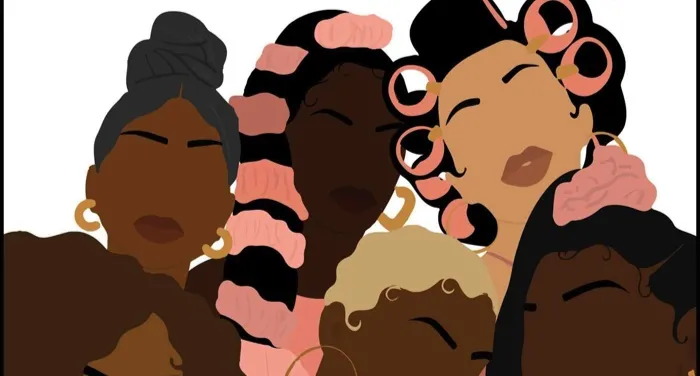
25 Must-Read Plays
As a former theater kid, there is still something so magical about reading a play. I love the sparse descriptions, the miles of dialogue, and especially love the monologues. I can imagine how I’d recite the words, or I can picture my favorite actors in the roles. Finding the rhythm of the words as I read a play is as magical to me as when I do the same when radio poetry poetry, perhaps even a touch more.
Writing a must-read list of plays is a daunting task. There are so many! I could go with the obvious classic plays by people that everyone “should” read, like Tennessee Williams and Eugene O’Neill. I could focus on foundational plays by playwrights like Shakespeare and Molière. In researching possible titles, I found myself reading lists of important playwrights like Arthur Miller, George Bernard Shaw, Noël Coward, Neil Simon, Howard Pinter, Anton Chekhov, George Bernard Shaw…
Well. I think you can find a list of plays by old, mostly dead, mostly straight and entirely cis white men just about anywhere. A few of those classics are on this list, but I’ve tried to mostly go with less obvious choices. I’ve stuck to the 20th and 21st centuries, and you’ll only find plays — no musicals — on this list. I’m sure I’ve left off a great number of plays that deserve to be on this list, but I’ve endeavored to make sure every play that is here deserves the spot. Indeed, a few that I desperately wanted to include (such as Seed by Radha Blank, which I want to read) are not available in any format, and had to be left off.
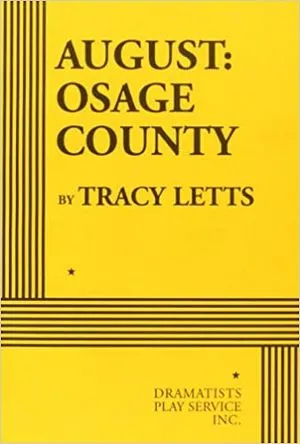
August: Osage County by Tracy Letts
When the patriarch of an Oklahoma family disappears and is later found to have died by suicide, his three estranged daughters and their children gather at the house with their mother, and family secrets come out in violent and hurtful ways.
Winner of the Pulitzer, New York Drama Critics’ Circle Award, and several Tonys.
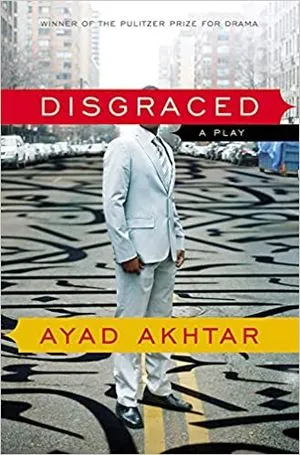
Disgraced by Ayad Akhtar
In this one-act play, Amir and Emily, an American couple, host dinner where tensions rise over discussion of religion. Amir is a non-practicing Muslim and a lawyer, Emily is an artist using Amir as her muse; their guests include Amir’s nephew Abe, his co-worker Jory, and her husband Isaac, who is Emily’s art dealer and who had an affair with Emily.
Winner of the Pulitzer and an Obie; nominated for a Tony.
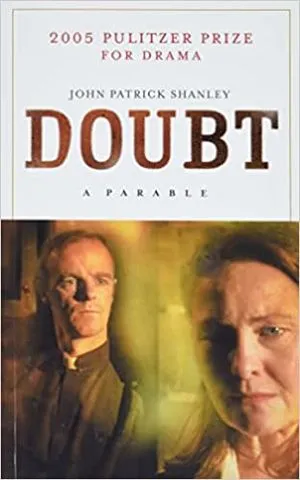
Doubt: A Parable by John Patrick Shanley
I became interested in Shanley’s playwriting because he wrote the screenplay for Moonstruck, which is my favorite movie. Doubt takes place in a fictional Bronx Catholic school and is about the principal, Sister Aloysius, becoming suspicious that the parish priest, Flynn, has behaved inappropriately with the school’s first Black student, Donald. Aloysius won’t back down, and the situation escalates.
Winner of the Pulitzer and several Tonys.
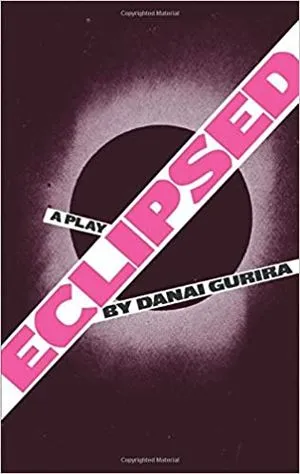
Eclipsed by Danai Gurira
Set near the end of the Liberian Civil War, this play is about the four wives of an unseen commanding officer in a rebel army, all of them sexual slaves with the three adults trying to protect the youngest, who is a teenage girl.
This was the first play on Broadway with an all-Black and all-female cast and crew.
Winner of an Outer Critics Circle Award, an Obie, and a Tony; Gurira also won the Lilly Awards Playwright Award.
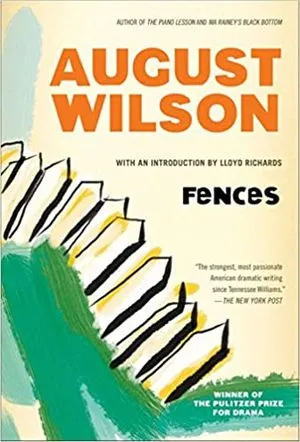
Fences by August Wilson
I wanted to include all 10 plays in Wilson’s Pittsburgh Cycle on this list, but limited myself to one (chosen solely because I saw it performed in Pittsburgh in 1999).
A former Negro League player, Troy wasn’t able to transition to MLB and did some time for robbery and murder. He bought his family’s home with money the government gave to his brother Gabe, who was injured in World War II, but Gabe no longer lives in the house. When Troy’s son Cory has an opportunity for a football scholarship, a family rift forms.
Winner of the Pulitzer and several Tonys. Adapted as a movie in 2016.
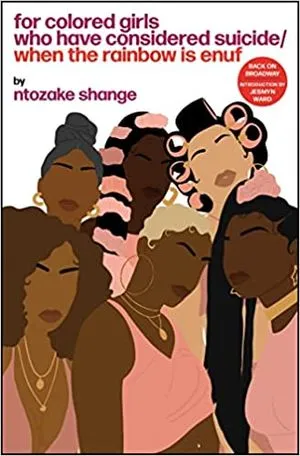
for colored girls who have considered suicide/when the rainbow is enuf by Ntozake Shange
Technically considered a musical by some, this choreopoem is made up of poems performed as monologues and choreographed to music, all of them about issues African American women face.
Winner of an Obie and a Tony. Adapted as a movie in 2010.

The Heidi Chronicles by Wendy Wasserstein
Following Heidi over 20 years, from high school through her career as an art critic, this play explores the changing roles of women in society from the 1960s to the 1980s.
Winner of the Pulitzer and Tony. Adapted as a movie in 1995.
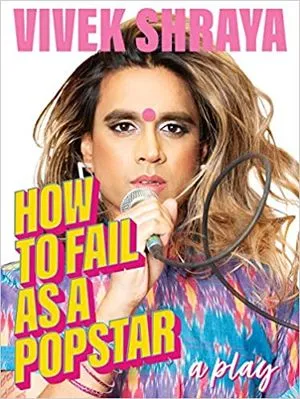
How to Fail as a Popstar by Vivek Shraya
This autobiographical play follows Shraya, a trans woman of color, through “her journey to ‘not quite’ pop music superstardom.” Technically a musical, but perhaps more of a mixed media play.
Shraya is adapting the play for television with the CBC.
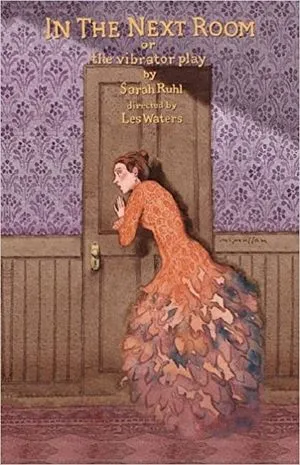
In the Next Room by Sarah Ruhl
Also known as “The Vibrator Play” and set in 1880, this play examines Victorian attitudes toward sex via the supposed history of the vibrator, which is believed to have been prescribed as a cure for hysteria.
Nominated for multiple Tonys.
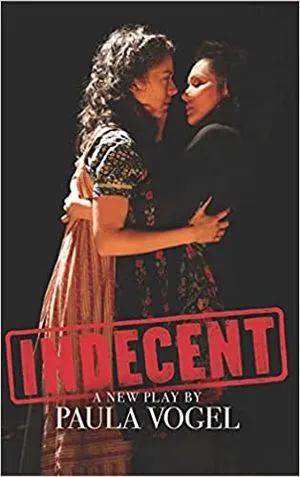
Indecent by Paula Vogel
Set in the early 20th century, this play chronicles the writing and performance of the Yiddish play The God of Vengeance, which closed when the Broadway cast was arrested and put on trial for obscenity.
Winner of an Obie, a Tony, and an Outer Critics Circle Award for outstanding direction.
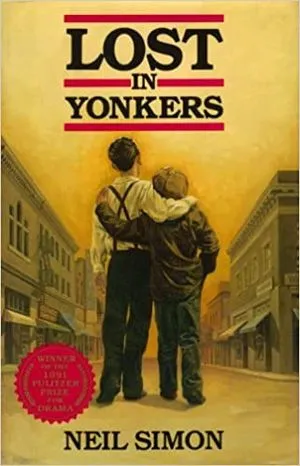
Lost in Yonkers by Neil Simon
I know I mentioned Simon above in my list of white men playwrights who don’t need to be on more lists, but I saw this play in 1991 with Jane Kaczmarek as Bella and it was just so good.
Teenagers Jay and Arty stay with their grandmother and aunt Bella in Yonkers after their mother dies. The boys try to come up with the cash to live with their father again.
Winner of the Pulitzer and several Tonys. Adapted as a movie in 1993.
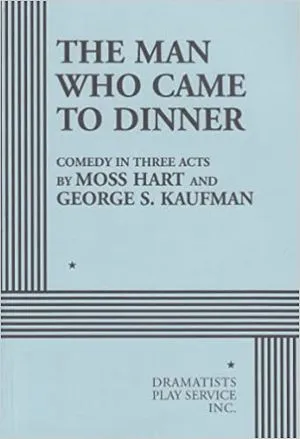
The Man Who Came to Dinner by Moss Hart and George S. Kaufman
Sheridan Whiteside is visiting friends in Ohio when he slips and is injured, necessitating a long stay during which he is such a terrible houseguest that one wonders if he is based in part on Hans Christian Andersen — although he is, in fact, based on Alexander Woollcott, theater critic and member of the Algonquin Round Table.
Adapted as a movie in 1942, as the musical Sherry! in 1967, and for television in 1972.
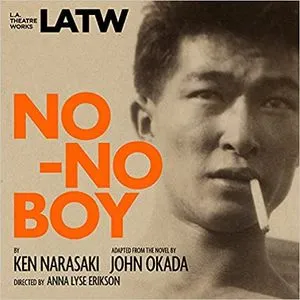
No-No Boy by Ken Narasaki
Available only as an audiobook, this play bridges the experience between reading and watching a performance. Based on John Okada’s novel No-No Boy, the play follows a World War II draft resister who is released from prison as his fellow Japanese Americans are returning to California from the internment camps.
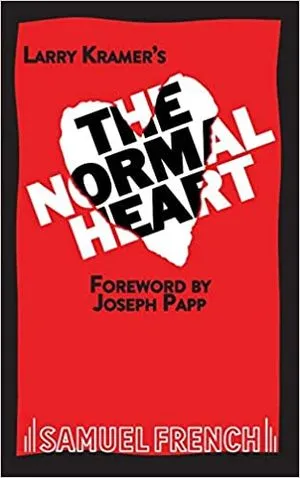
The Normal Heart by Larry Kramer
For many, the most important AIDS play is Angels in America, and of course it is also worth reading, but I selected The Normal Heart because it is about AIDS, while Angels uses AIDS as a metaphor. Kramer was a founding member of ACT UP and an activist, and his work is well worth the read. The play follows activist Ned in the early 1980s as he tries to form a group to raise awareness about the plague killing gay men like himself.
Winner of multiple Tonys. Adapted as a movie in 2014.
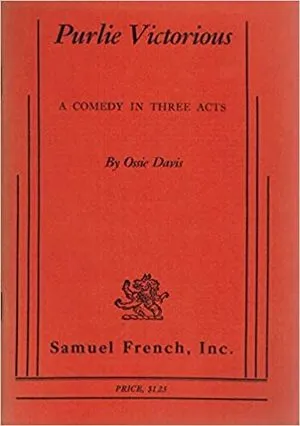
Purlie Victorious by Ossie Davis
This play unfortunately appears to be out of print, though a film adaptation starring Davis can be found on DVD for about $12. Also adapted as the musical Purlie, this play tells the story of a traveling preacher during Jim Crow who returns to his hometown in Georgia and tries to save a church and emancipate workers at the cotton plantation.
Adapted as the movie Gone Are the Days! in 1963 and as a musical in 1970.
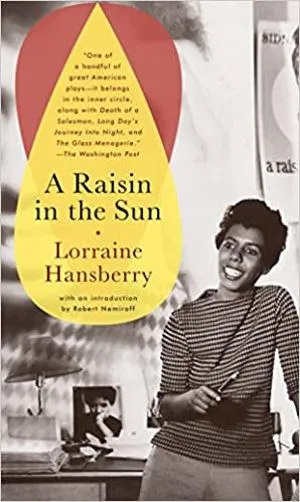
A Raisin in the Sun by Lorraine Hansberry
This classic is set in Chicago and its title is from a Langston Hughes poem. A Black family on the South Side of Chicago disagrees about how to spend the life insurance payout. Mama buys a house in a white neighborhood, and her son gives the rest to a business partner who runs away with it, taking away his sister’s chance at an education.
Adapted as a movie in 1961, as the musical Raisin in 1973, for television in 1989, and several other times.
Further reading: Looking for Lorraine by Imani Perry
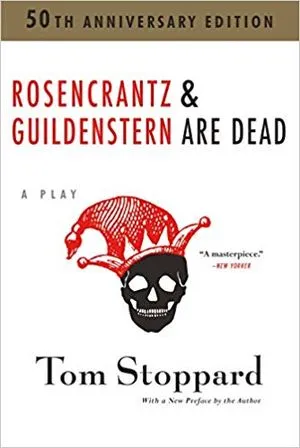
Rosencrantz & Guildenstern are Dead by Tom Stoppard
Taking place simultaneously to Shakespeare’s tragedy Hamlet, this absurdist comedy follows the two minor characters who are tasked with delivering the letter ordering Hamlet’s death, which he intercepts and rewrites to order their deaths.
Winner of New York Drama Critics Circle and Outer Critics Circle awards. Adapted as a movie in 1990.
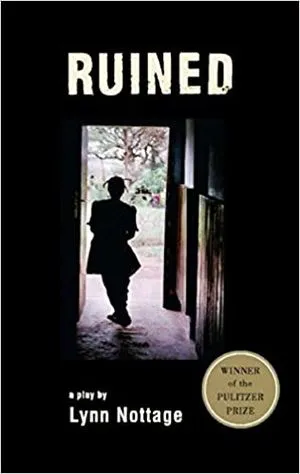
Ruined by Lynn Nottage
Set in a poolroom in the Democratic Republic of Congo, the play follows Mama Nadi and her waitresses, as well as their customers who are miners and soldiers.
Winner of the Pulitzer and several Obies.
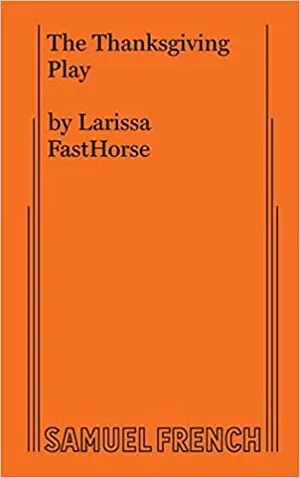
The Thanksgiving Play by Larissa FastHorse
In this biting satire by an Indigenous playwright, four white people attempt to put on a politically correct and non-offensive play about the first Thanksgiving. The casting note suggests that the characters may be played by POC passing as white.
The Thanksgiving Play is debuting on Broadway this spring.
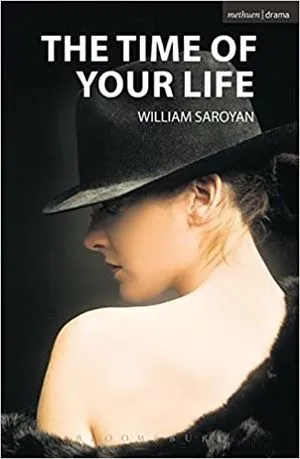
The Time of Your Life by William Saroyan
This five-act play is set in San Francisco dive bar Nick’s Pacific Street Saloon. Wealthy patron Joe interferes with the other patrons’ lives in mostly positive ways, helping a young dancer get work and setting up a couple.
Winner of the Pulitzer and the New York Drama Critics Circle Award. Adapted as a movie in 1948.

Topdog/Underdog by Suzan-Lori Parks
Adult brothers Lincoln and Booth are living together temporarily. Lincoln works in “whiteface” as an Abraham Lincoln impersonator, but Booth wants him to take up three-card monty again.
Winner of the Pulitzer, the Outer Critics Circle Award, and the Obie; nominated for multiple Tonys.
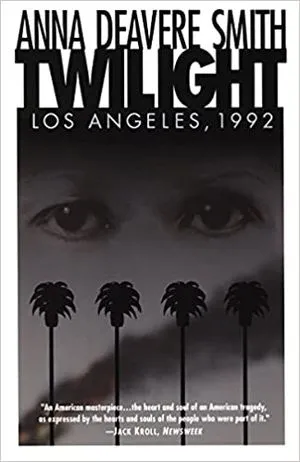
Twilight: Los Angeles, 1992 by Anna Deavere Smith
This one-woman play is about the L.A. Riots following the acquittal of the police officers who beat Rodney King. Smith interviewed 300 people for diverse perspectives on the riots, and portrayed several of them onstage.
Nominated for multiple Tonys. Adapted as a movie in 2000.
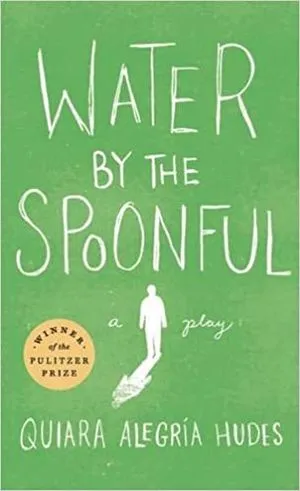
Water by the Spoonful by Quiara Alegría Hudes
The second part in Hudes’s Elliot Trilogy, this play follows Marine veteran Elliot after he returns home to Philadelphia following an injury in Iraq. His adopted mother has died; meanwhile, his birth mother moderates an online Narcotics Anonymous chat group.
Winner of the Pulitzer.
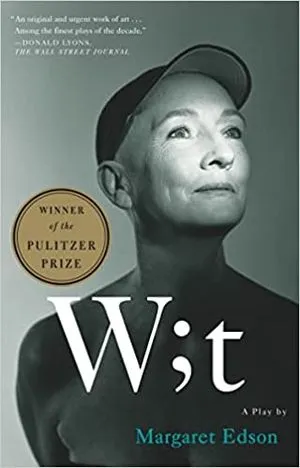
Wit by Margaret Edson
This one-act play takes place over the last hours in the life of Dr. Vivian Bearing, a professor of 17th century poetry. She recalls her cancer diagnosis, testing, and treatment, and reflects on her life using the intricacies of English language, particularly wit.
Winner of the Pulitzer.
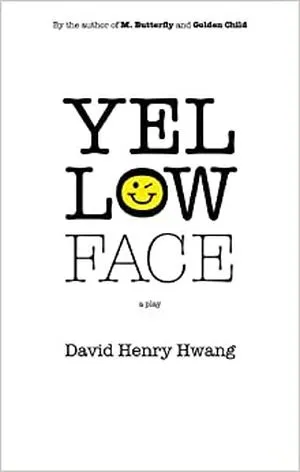
Yellow Face by David Henry Hwang
This fictionalized autobiographical play follows Hwang himself during the controversy over the casting of a white actor in the lead (Asian) role in his earlier play, M. Butterfly, and the repeating of history when he casts his subsequent play, Face Value.
Winner of the Obie, finalist for the Pulitzer.
Further Reading
If you want to be truly well-rounded in your play reading, of course you should consider reading Who’s Afraid of Virginia Woolf by Edward Albee, A Streetcar Named Desire by Tennessee Williams, Our Town by Thornton Wilder, A Moon for the Misbegotten by Eugene O’Neill, Waiting for Godot by Samuel Beckett, No Exit by Jean-Paul Sartre, I Remember Mama by John Van Druten, or Life With Father by Russel Crouse and Howard Lindsay…if you haven’t already. And that guy Shakespeare was okay at playwriting, too. Just please read some plays by non–white dudes, too.
Or you might like these:









